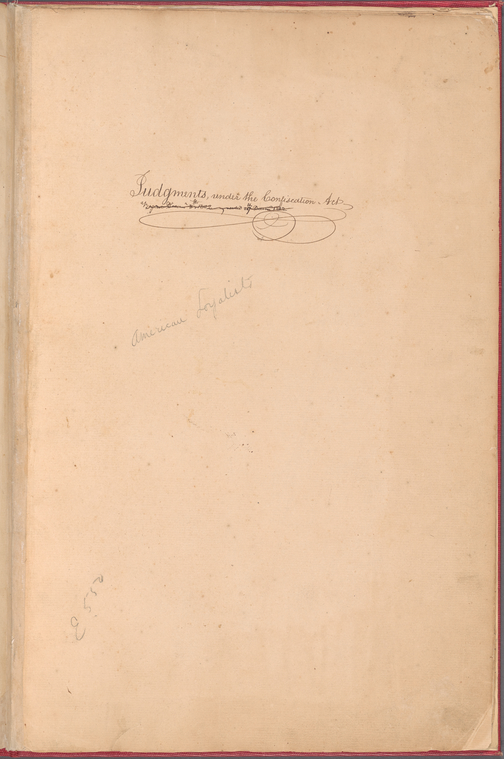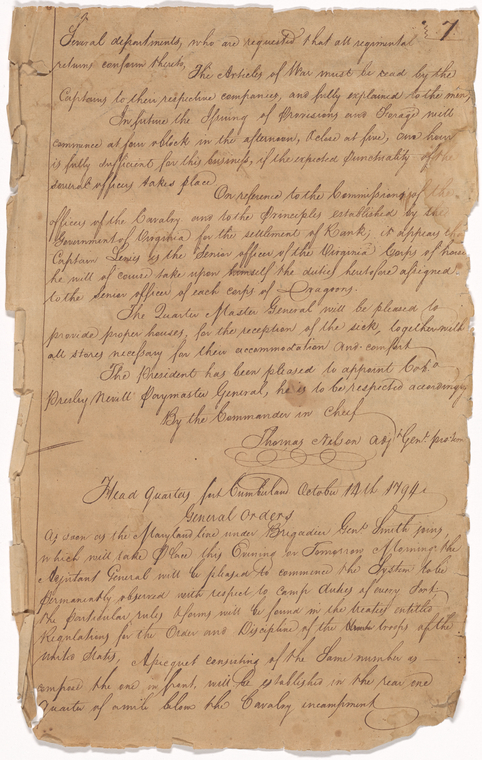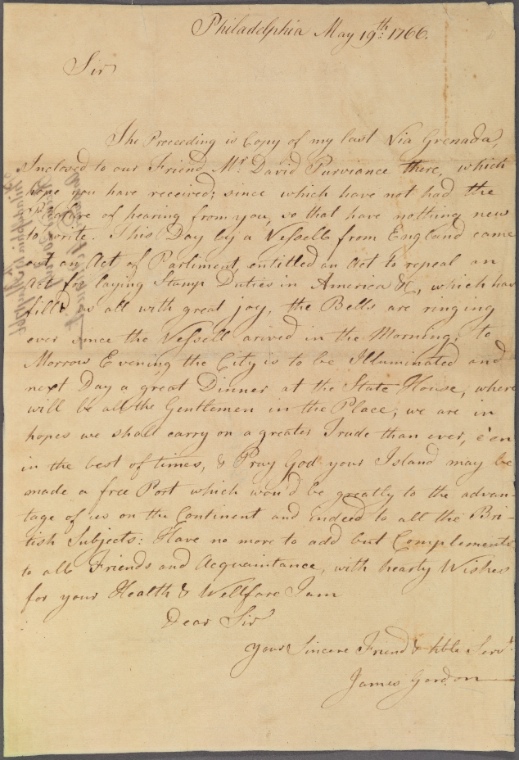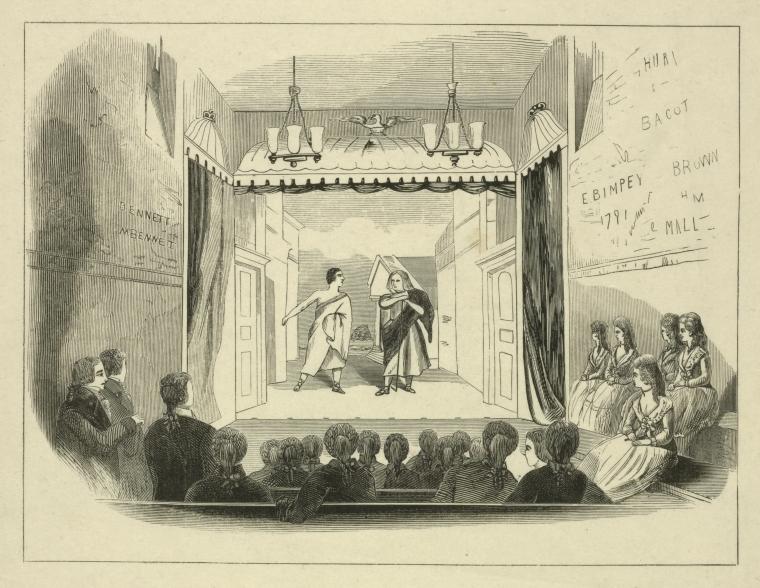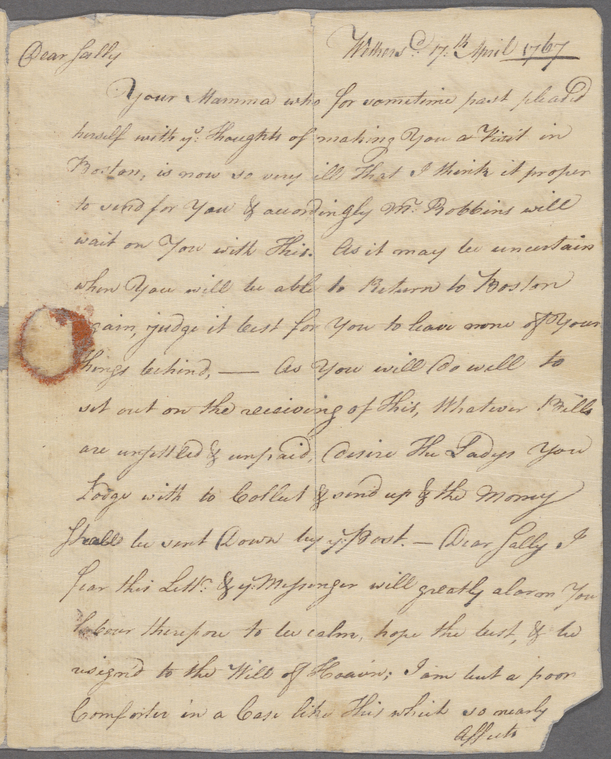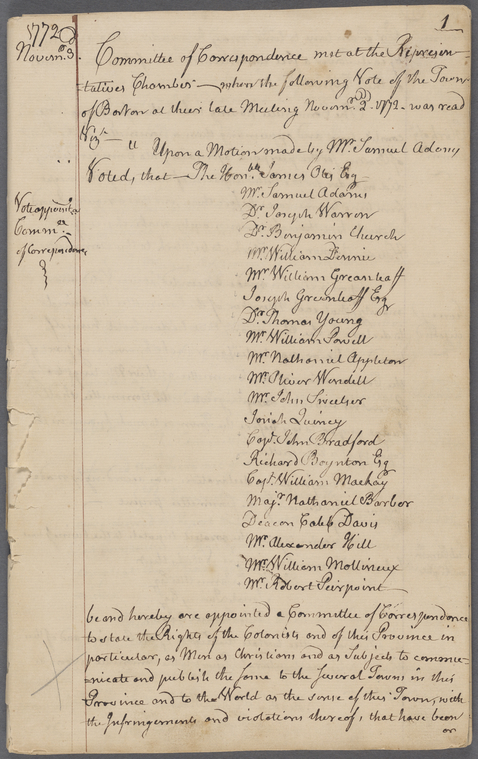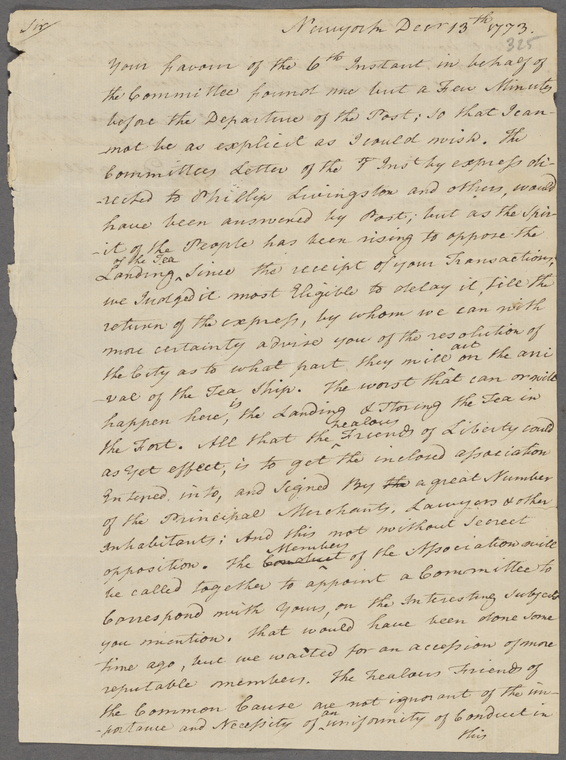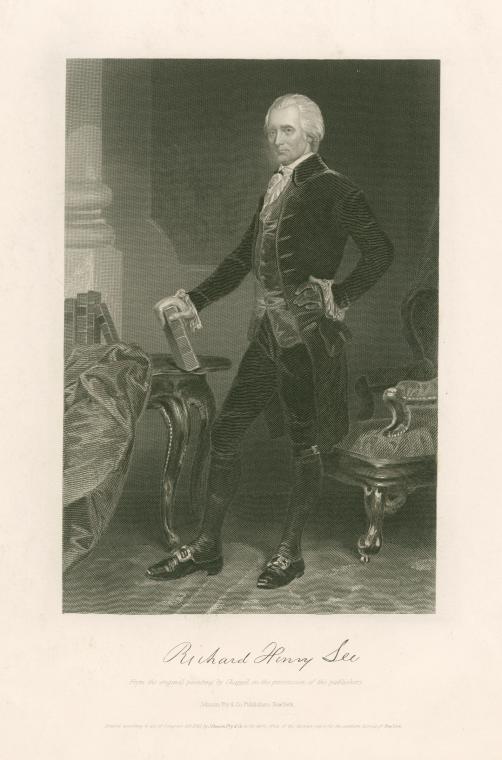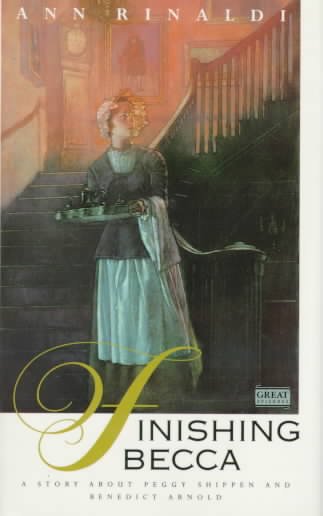From White Mountain to Bunker Hill: A Japanese Print Links East & West
by Jay Vissers
November 3, 2017
Tsukioka Yoshitoshi's "The Death of Murata Sansuke" and John Trumbull's "Battle at Bunker's Hill" share striking similarities.
Life, Liberty, & Romance
by Anne Rouyer, Supervising Librarian, Mulberry Street Library
July 3, 2017
The American Revolution was a turbulent time in American history, with great potential for romance as well as trauma. War, divided loyalties, danger around every corner, spies, intrigue, remote homes and forts, decadent Georgian society, men in uniform, women in corsets and dresses that leave little to the imagination, cozy fires to cuddle by... you get the picture. And we’ve found a handful of novels to make your July 4 that much more patriotic and passionate.
Sympathy for a Spy
by Mark Boonshoft
September 30, 2016
A sympathetic account of the execution of British spy John André, written by an American Army officer.
Dispossessing Loyalists and Redistributing Property in Revolutionary New York
by Mark Boonshoft
September 19, 2016
A recently digitized item sheds light on the profound social upheaval caused by the American Revolution in New York.
Drinking Whiskey in the Whiskey Rebellion: The Soldiers' Perspective
by Mark Boonshoft
August 31, 2016
The infamous Whiskey Rebellion, told from the perspective of the soldiers who suppressed it.
Now Screening: American Founding Era Papers
by Meredith Mann, Manuscripts and Archives Division, Stephen A. Schwarzman Building
August 18, 2016
Everyone's talking about the ten dollar Founding Father these days. If you are researching the Revolutionary Era, the New York Public Library's database American Founding Era Papers is for you.
Mary Katherine Goddard's Declaration of Independence
by Mark Boonshoft
June 29, 2016
Most Americans in the revolutionary period found out who signed the Declaration of Independence in print, not parchment. The job of printing it went to a woman named Mary Katherine Goddard.
Celebrating the Stamp Act's Repeal, May 19, 1766
by Mark Boonshoft
May 18, 2016
One Philadelphian's account of the celebrations accompanying the repeal of the Stamp Act in 1766, and what it tells us about the coming of the American Revolution.
British Soldiers' Theatre During the Revolutionary War
by Barbara Cohen-Stratyner
April 21, 2016
When Shakespeare wrote “All the World’s a Stage,” he probably wasn’t thinking that his words would someday be performed in an occupied city by an invading army. Nevertheless, during the American Revolution theater seemed to spring up in the oddest of places, often in productions acted by soldiers.
Silas Deane: Reading and Parenting in Revolutionary America
by Mark Boonshoft
December 21, 2015
Political elites are well represented in archival collections. One of the great virtues for historians is that a lot of their family correspondence survives, though it is not always included in edited volumes that focus on political events. Through these papers we can glimpse family life at an emotional level.
Top 9 Documents from the Boston Committee of Correspondence Records
by Mark Boonshoft
November 30, 2015
The BCC records is an important resource for understanding the American Revolution. But it is also a massive and unwieldy one. To make things easier, I've put together a list of nine important and representative documents from the BCC records, which, taken together, offer a rough outline of the BCC's activities and functions during the 1770s and 1780s, as well as a sense of the Committee's place in the larger story of the American Revolution.
Reintroducing the Boston Committee of Correspondence Records
by Mark Boonshoft
October 6, 2015
Looking back on the Revolution in 1815, John Adams remarked that “The History of the United States never can be written” without the records of the Boston Committee of Correspondence.
Unexpected Sources: Slave Cloth in the Richard Henry Lee Letters
by Mark Boonshoft
September 3, 2015
One of the most surprising letters I have recently come across is held in a small group of Richard Henry Lee correspondence: a passing reference that serves as an indication of slavery’s enormous economic influence.
George Chalmers and the History Wars of the American Revolutionary Era
by Mark Boonshoft
June 12, 2015
George Chalmers was a sore loser. Born in Scotland in 1742, Chalmers came to Maryland in 1763 and practiced as an attorney until 1775. Hostilities between Britain and its colonies drove the ardent loyalist to leave North America for London. In England, Chalmers began amassing documents and writing histories about colonial North America and British imperial policy in the seventeenth and eighteenth centuries.
Booktalking "Finishing Becca" by Ann Rinaldi
by Miranda McDermott, Harry Belafonte 115th Street Library
March 10, 2015
The Declaration of Independence was penned in 1776. This is Philadelphia in 1778, in the midst of the Rebels and the Loyalists. 14-year-old Becca Syng is sent to work and live as a maid with the spoiled Peggy Shippen, future wife of Benedict Arnold.
Evacuation Day: New York's Former November Holiday
by Megan Margino, Milstein Division of U.S. History, Local History & Genealogy, Stephen A. Schwarzman Building
November 24, 2014
A once-annual holiday local to New York City, Evacuation Day was formerly equal in importance to the Fourth of July. Referring to the evacuation of British troops from New York City following the Revolutionary War, the celebration of the troops’ departure was observed yearly throughout the early 20th century.
TeachNYPL Summer 2014: Lists for Lesson Planning - Primary Sources and the Common Core
by Amie Wright
September 5, 2014
From July 28-Aug 1 we welcomed our second group of teachers from NYC or our second annual Education Innovation @ NYPL Summer Institute.
Booktalking "Founding Mothers" by Cokie Roberts
by Miranda McDermott, Harry Belafonte 115th Street Library
May 6, 2014
Unfortunately, there is not much written about the formative female figures in our nation's history. In many cases, women assisted famous male figures, but some also did amazing things sheerly of their own volition.
 With your library card, it's easier than ever to choose from more than 300,000 e-books on SimplyE, The New York Public Library's free e-reader app. Gain access to digital resources for all ages, including e-books, audiobooks, databases, and more.
With your library card, it's easier than ever to choose from more than 300,000 e-books on SimplyE, The New York Public Library's free e-reader app. Gain access to digital resources for all ages, including e-books, audiobooks, databases, and more.


